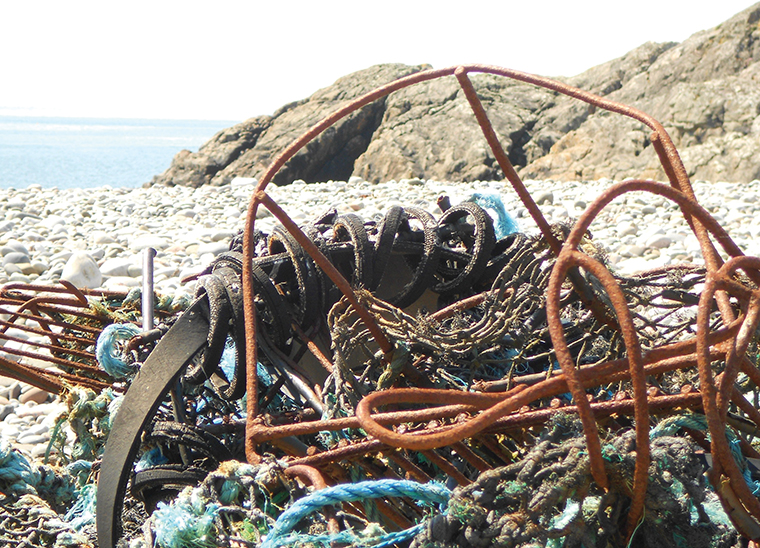
Excerpted from the Summer 2019 edition of Communities, “Sexual Politics”—full issue available for download (by voluntary donation) here.
One of the hardest parts of my job is undoubtedly responding to reports of misconduct or misrepresentation by groups listed in the Communities Directory. Not all of these situations have to do with sexual misconduct, but they often do, or involve misuse of power, often along gender lines. We’ve also fielded accusations of racism, as well as financial misconduct. Sometimes someone brings a complaint and it’s clear that they’re either off base or just have an axe to grind. Sometimes it’s unclear what’s going on, which in itself is challenging to deal with. And other times it’s clear that what we’re being told is true.
No community, intentional or otherwise, is immune from people doing terrible things. Thinking intentional communities are somehow above this sort of thing is at best naive. We carry into intentional communities all of our baggage and trauma and dysfunction, and some carry worse. Intentional communities may have a better chance at screening it out or seeing it before it happens, but on the other hand they also create opportunities for people to take advantage of others that don’t exist in other living situations. And because intentional communities make good news stories, especially when bad things happen at them, we need to be extra vigilant.
We know the likely problems we’ll face in cooperative groups. Even if we assume the best in people, we know our flaws. And while we don’t want to live in fear and create reactionary policies for every possible thing that can go wrong, we can be realistic and guard against the very real possibility that someone will try to harm someone else.
There are two broad categories of people harming others in intentional communities. There’s the one-bad-egg scenario, where someone does something terrible, often to everyone’s surprise, and the community has to grapple with how did this happen and what can we do to make sure it doesn’t happen again. What makes this situation even more horrific is when the community is divided on whether or not it really happened or what the appropriate response should be. This kind of controversy often means that the incident is never really processed or healed, which limits the chances that the community really does what it needs to do.
The other scenario is where a person, couple, or small group starts a community and uses it as a platform for taking advantage of people. We’ve gotten enough reports about groups listed in the Communities Directory to know this happens sometimes and it makes me sick to my stomach to think that we’re providing information about groups that may be leading people into dangerous situations.
The Directory is a platform for intentional communities to present themselves, often for the purpose of attracting new members. While we review each listing before publishing, we do not have the staff time to examine each community firsthand to assess the accuracy of the information they provide. There are several restrictions for being listed in the Directory. Groups must not:
- Engage in, advocate for, or condone any kind of physical, sexual, mental, financial, and/or emotional violence, coercion, manipulation, abuse,and/or harassment, directly or indirectly, intentionally or unintentionally, towards any person or people.
- Prevent or interfere with anyone attempting to leave the group or to contact people outside the group.
- Misrepresent themselves in any way, intentionally or unintentionally.
- Discriminate based on certain protected classes as defined by Fair Housing Laws.
We require groups to be honest and accurate in the information they provide, and publishing a group’s listing is not an endorsement of them, and yet we know that publishing the Directory may be helping create harmful situations for people.
When people bring issues to us we will do our best to understand the situation and respond accordingly. But we are neither a law-enforcing authority nor do we have the capacity as an organization to function as a mediator. Other than communicating with the parties involved and attempting to provide resources or support resolution, our only power in a situation is to require modifications to a listing in the Directory or refuse service. In some cases we may go as far as to communicate the issues we’re aware of to other organizations that list communities.
My hope with this issue of Communities and the upcoming issue on The Shadow Side of Cooperation is that we can begin to share these stories more openly so that we can all learn from each other. Trying to create cooperative organizations of any kind in the world today is an uphill battle. There is so much to learn and unlearn. We’re trying to undo generations of conditioning and trauma. We’re not going to be successful overnight. We have to start with the mistakes, the failures, learn from them, help each other heal, learn how to love a little more, and try, try again.
Sky Blue (sky [AT] ic.org) is Executive Director of the Foundation for Intentional Community.
Excerpted from the Summer 2019 edition of Communities, “Sexual Politics”—full issue available for download (by voluntary donation) here.


















joel randall
Appears to be much better in Intentional Communities than in normal towns such as one I am near Seymour MO.
It appears that at 80 years old (Me) and other Elders are not wanted in Intentional Communitiesl Do you know of exceptions? Please advise.
Cohousing for retired people are generally welcoming.